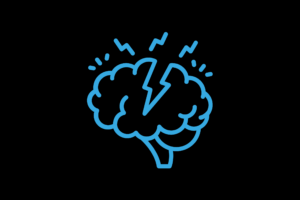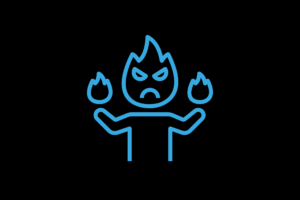I didn’t realise I was autistic until I was in my 40s, so a lot of the time when I was experiencing burnout I thought it was something else. When I was at school it was “it’s all a bit much and I need a break”, and I would spend a few days in bed (luckily my parents let me do this, and schools weren’t so obsessed with attendance back then). Then when I was working I thought I had viruses a lot, and again I would spend a few days in bed. I was experiencing repeated, small burnouts. But if you don’t have these opportunities to recover, or if overwhelm builds and builds over time and becomes unbearable, a few days in bed won’t even nearly be enough.
For some young people burnout looks like shutting down and retreating into their room for a few days, for others the period of full recovery can go on for months or even years. When our bodies tell us, or force us, to stop, it’s important that we listen to them to prevent the build up getting worse. Burnout can mean not attending school, not leaving the house and struggling with all sorts of things like eating, sleeping or interacting with others. When someone is in burnout their nervous system is heightened which means that things they didn’t mind, or could cope with before, become so much harder. This might mean that noises seem louder, certain food textures or smells make you feel sick or being asked questions makes your head hurt. Therefore, it makes total sense that people in burnout do everything they can to avoid these things which might include behaving in a way that seems very controlling to those around them. They might shout, hit out or say mean things to other people even though they don’t want to, but in that moment stopping the thing that is overwhelming our nervous system is always the priority and sometimes they can’t help it even if part of their brain is telling them not to and they feel terrible about it afterwards.
The difficulty is that not only do we put pressure on ourselves to carry on, but so do those around us and unhelpfully so does society! We want to do the things our friends and peers are doing. We worry about our future if we don’t carry on with school, homework, clubs and friendships. Parents also worry about these things and that can make them miss seeing how hard things are. Then there are the messages from our teachers and society in general which say that if we don’t pass exams it will make all sorts of bad things happen in our future. But the reality is that getting our own needs met, learning our own boundaries and what helps us feel good is actually what leads to a better future.
I often hear the word “resilience” used and every time it makes me annoyed, because usually what people mean is that we need to push ourselves to do things that are hard in order to be resilient, but in fact the opposite is true; being resilient means building a life that works for you. As an adult this might mean working from home, being self-employed, only having friends that understand you and “fit” with you. Making these choices is much harder when you are a child so it is important that those around you, especially the adults, understand burnout including how to avoid it by meeting your needs, how to recognise it, and how to support you with it.
It’s really important to know that huge numbers of people experience burnout and being able to connect with those people is often helpful to make you feel less alone and to help you accept that this isn’t your fault, and there is a future beyond burnout and a way to help if you can feel the signs that it is happening again.



